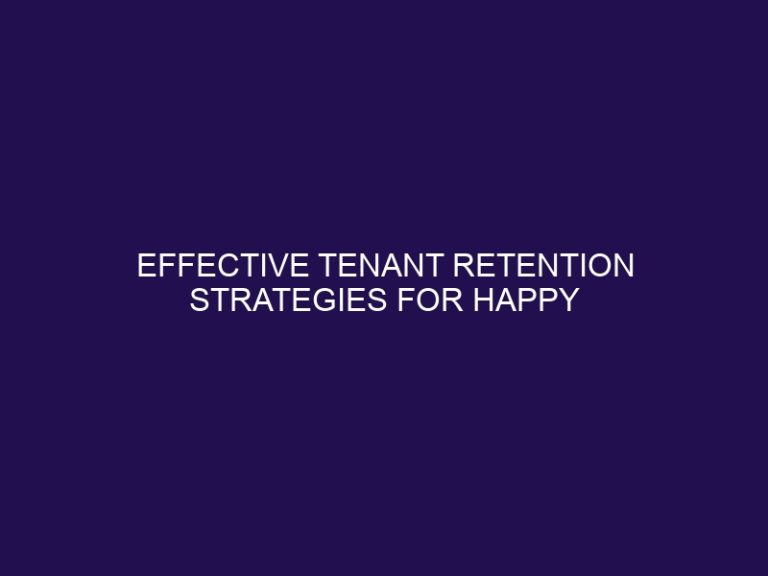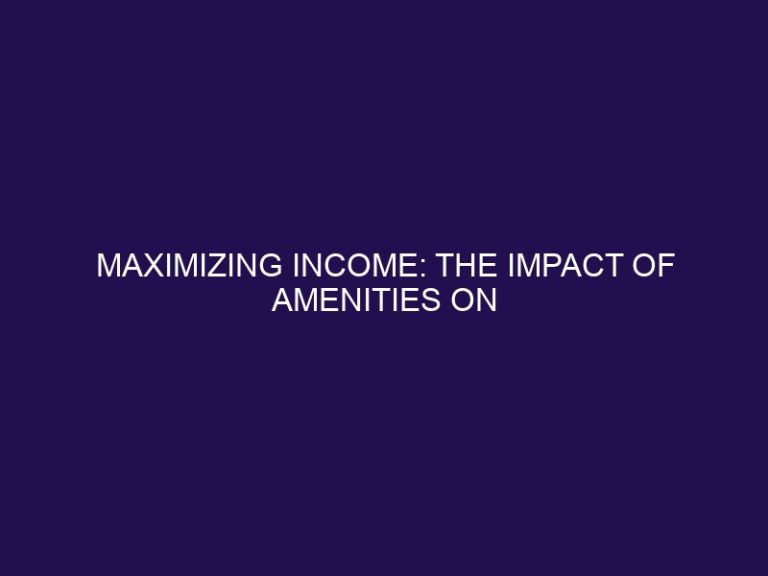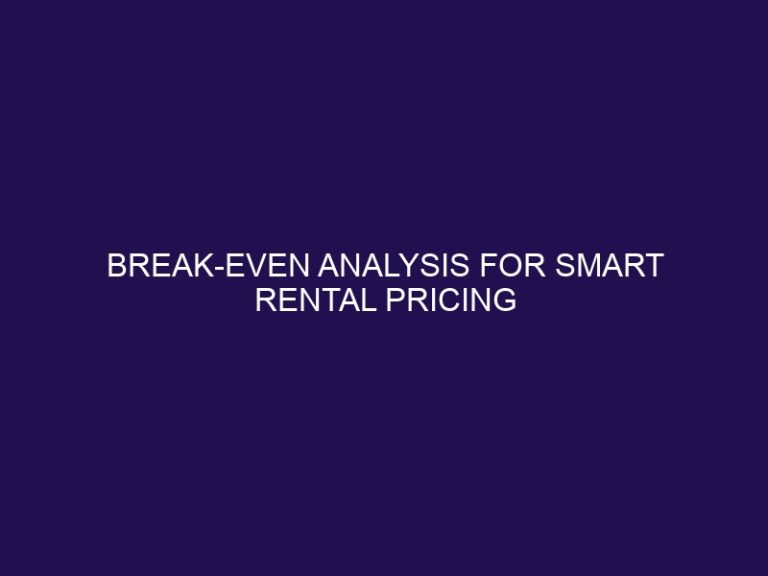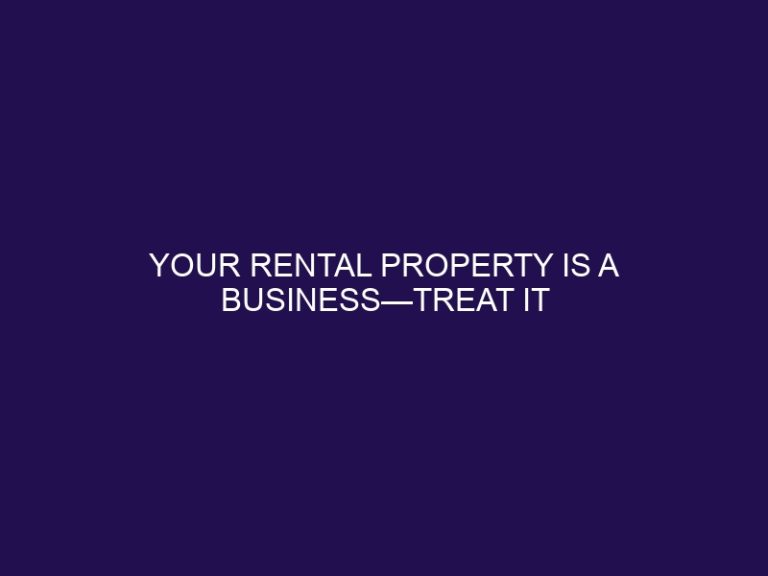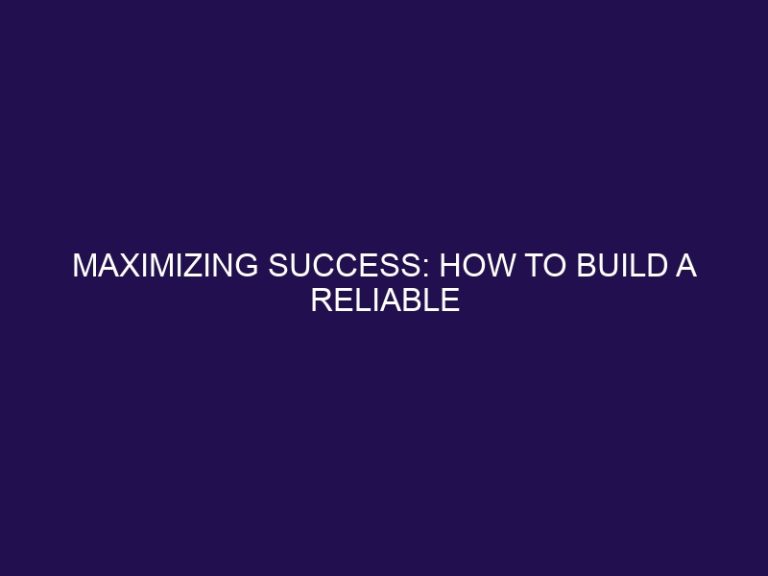What Is The Empty Homes Tax? [Canada]
Empty Homes Tax, also known as the Vacancy Tax, is a policy implemented by certain cities in Canada to address the issue of housing affordability and the high number of vacant properties. It is an annual tax imposed on homeowners who leave their residential properties unoccupied for a significant period of time.
The purpose of the Empty Homes Tax is to encourage homeowners to either rent out their properties or sell them, thereby increasing the housing supply for residents in need. It aims to alleviate the housing crisis, promote a more equitable distribution of housing resources, and discourage speculation and investment in empty properties.
Several cities in Canada, such as Vancouver and Victoria, have implemented the Empty Homes Tax to tackle their respective housing challenges.
In terms of how the Empty Homes Tax works, homeowners must declare whether their property is vacant or not. Criteria for a property to be considered empty may differ based on the specific regulations of each city, but generally, it refers to properties that are unoccupied for a certain period, usually 6 or more months in a year.
The calculation of the Empty Homes Tax varies depending on the city and its regulations. It is typically a percentage of the property’s assessed value. Homeowners are required to pay the tax annually by a specified deadline.
The Empty Homes Tax primarily affects homeowners who leave their properties empty for extended periods. However, it may also have implications for property investors, landlords, and property management companies.
Exemptions from the Empty Homes Tax are available in certain cases, such as when a property is undergoing major renovations or repairs, if the owner is deceased, or if the property is used for specific purposes such as rental housing for students.
The Empty Homes Tax has both benefits and controversies associated with it. On one hand, it helps address housing shortages, drives property owners to utilize their properties more wisely, and generates revenue for the city. On the other hand, controversies arise regarding the effectiveness of the tax, potential unintended consequences, and possible administrative complexities in its implementation.
What is the Empty Homes Tax?
What is the Empty Homes Tax?
The Empty Homes Tax is a policy implemented in Canada to address the issue of vacant properties and increase housing affordability. It is a tax imposed on owners of residential properties that are left unoccupied for a certain period of time each year. The aim of the Empty Homes Tax is to encourage owners to either rent out their properties or sell them to alleviate housing shortages. The tax is usually calculated based on a percentage of the property’s assessed value. Municipalities use the revenue generated from this tax to fund affordable housing initiatives and address housing challenges in their communities.
What is the Purpose of the Empty Homes Tax?
The purpose of the Empty Homes Tax is to address the issue of housing affordability and availability in cities. It aims to discourage homeowners from leaving their properties vacant for extended periods by imposing a tax on these homes. The tax is meant to encourage owners to either rent out their properties or sell them, thereby increasing the housing supply and reducing speculation in the market. The revenue generated from the tax can then be reinvested into affordable housing initiatives or used to improve housing affordability for residents. Ultimately, the goal is to ensure that housing resources are utilized efficiently and effectively.
Which Cities in Canada Have Implemented the Empty Homes Tax?
Which Cities in Canada Have Implemented the Empty Homes Tax?
As of now, Vancouver, Toronto, and Victoria are among the several cities in Canada that have implemented the Empty Homes Tax to address the issue of vacant properties. Each city has tailored its own version of the tax to suit their specific needs and housing market conditions. Vancouver took the lead by becoming the first city in Canada to implement the tax in 2017, followed by Toronto and Victoria. The main objective of the Empty Homes Tax is to discourage property owners from leaving their homes sitting empty, especially when there is a growing demand for housing. Moreover, it plays a vital role in generating revenue for the city and encourages homeowners to either rent out their vacant properties or sell them to provide housing options.
How Does the Empty Homes Tax Work?
The Empty Homes Tax works by addressing the issue of vacant homes and encouraging owners to either rent them out or sell them. So, how does the tax actually work? Well, owners of empty homes are required to declare their property status and pay a tax if it remains unoccupied for a certain period of time. The annual tax rate varies depending on the value of the property, ranging from 0.5% to 3%. This measure is aimed at increasing the availability of rental housing and reducing speculation in the real estate market. To comply with the tax, owners can consider options such as renting out the property, finding a qualified resident, or even selling the property altogether. For more information, you can visit What Is The Empty Homes Tax? [Canada].
What are the Criteria for a Home to be Considered Empty?
What are the Criteria for a Home to be Considered Empty?
To determine whether a home is considered empty, certain criteria must be met. These criteria can vary based on the specific regulations implemented by each city for the Empty Homes Tax in Canada. Generally, a home is classified as empty if it remains unoccupied for a specific number of days within a designated period. Depending on the city, this threshold may range from 3 months to 6 months or more. It is crucial to consult the criteria specific to your city in order to ascertain whether your home falls within the definition of an “empty” home. Accurate information can be obtained by consulting with local authorities or by visiting their official websites.
How is the Empty Homes Tax Calculated?
The calculation of the Empty Homes Tax in Canada is based on a specific formula set by each city. Generally, it is calculated as a percentage of the assessed value of an empty home. The question of “How is the Empty Homes Tax Calculated?” can be answered by understanding that, for example, in Vancouver, the tax rate is 1% of the home’s assessed value. This means that if a home is assessed at $1 million, the Empty Homes Tax would amount to $10,000 per year. The assessed value is determined by the city’s assessment authority, taking into account factors such as location, size, and condition of the property. It is important for homeowners to accurately report the status of their property to avoid penalties.
In 2019, a homeowner in Vancouver received a hefty Empty Homes Tax bill of $30,000. They had declared their property as occupied, but upon investigation, it was discovered that the home had been vacant for most of the year. The miscalculation led to a significant penalty and a lesson learned about the importance of accurately reporting property status.
What are the Deadlines for Paying the Empty Homes Tax?
Homeowners in Canada must meet specific deadlines for paying the Empty Homes Tax. In Vancouver, for example, the tax must be paid annually by the due date indicated in the tax notice. Failure to pay by the deadline will result in penalties and interest charges. Homeowners are encouraged to pay the tax on time to avoid any unnecessary fees and complications. It is important to note the deadlines for paying the Empty Homes Tax as it helps homeowners comply with tax regulations and prevent potential penalties. Therefore, homeowners should stay informed about the specific due dates mentioned in the tax notice to ensure timely payment and avoid any unnecessary fees and complications.
Who is Affected by the Empty Homes Tax?
Who is Affected by the Empty Homes Tax?
The empty homes tax in Canada affects certain individuals who own properties but leave them vacant for a significant period. Those who own residential properties in designated taxable areas and leave them empty for six months or more in a calendar year are subject to this tax. This includes property owners who are not Canadian residents but own empty homes in the taxable areas. The goal of the empty homes tax is to encourage property owners to make their homes available for rent or sale, thus increasing the housing supply.
Fun Fact: According to a report, the introduction of the empty homes tax in Vancouver resulted in a decrease of vacant homes by 25%.
Are Homeowners the Only Ones Affected by the Empty Homes Tax?
No, homeowners are not the only ones affected by the empty homes tax in Canada. The tax also impacts property owners who own vacant properties, including investors, developers, and landlords. Individuals and families looking for affordable housing can be indirectly affected by the empty homes tax, as it aims to encourage the rental or sale of vacant properties. By discouraging speculation and encouraging the use of housing for its intended purpose, the tax aims to address housing affordability issues in cities that have implemented it, such as Vancouver and Toronto.
Can Homeowners be Exempted from the Empty Homes Tax?
Homeowners may be eligible for exemptions from the Empty Homes Tax in Canada based on certain criteria. Can Homeowners be Exempted? To qualify for an exemption, homeowners must demonstrate that their property is not empty or that it falls under specific categories, such as being rented for at least six months of the year or used as a principal residence. Homeowners can apply for an exemption annually and must provide supporting documentation to prove their eligibility. It’s important for homeowners to familiarize themselves with the specific guidelines and deadlines for exemptions in their respective cities to ensure compliance with the Empty Homes Tax regulations.
Benefits and Controversies Surrounding the Empty Homes Tax
The Empty Homes Tax has both benefits and controversies surrounding it. Here are some key points to consider:
- Benefits:
- Increased housing availability as vacant homes are brought back into use.
- Generate revenue for local governments to invest in affordable housing initiatives.
- Incentivize owners to rent out their properties instead of leaving them vacant.
- Controversies:
- Potential burden on homeowners who have valid reasons for keeping their properties vacant.
- Implementation challenges and high administrative costs.
- Evaluation difficulties in determining whether a property is genuinely vacant.
Fact: In 2019, the Empty Homes Tax in Vancouver generated CAD $39.7 million in revenue, contributing to the development of affordable housing in the city.
What are the Benefits of the Empty Homes Tax?
The Empty Homes Tax in Canada has several benefits that contribute to addressing housing affordability and utilization issues. What are the Benefits of the Empty Homes Tax?
- Increased housing supply: By discouraging property owners from leaving homes empty, the tax encourages them to rent out or sell their properties, increasing the availability of housing.
- Reduced speculation and vacancy: The tax targets properties that are frequently left vacant or underutilized, discouraging speculative investment and ensuring that homes are utilized effectively.
- Stabilized rental market: The tax relieves pressure on the rental market by incentivizing owners to rent out their vacant properties, helping to address rental shortages and rising rents.
- Revenue for affordable housing initiatives: The tax generates additional revenue that can be invested in affordable housing initiatives, providing support for low-income individuals and families.
- Encouraged community development: By promoting increased occupancy rates and vibrant neighborhoods, the tax stimulates community development and improves the livability of urban areas.
What are the Controversies Surrounding the Empty Homes Tax?
Controversies surrounding the Empty Homes Tax in Canada have sparked debates since it was implemented. Opponents argue that this tax unfairly targets homeowners and fails to address the root causes of housing affordability issues. They claim that it penalizes individuals who may have valid reasons for keeping their homes vacant, such as undergoing renovations or embarking on extended travel. Concerns also exist regarding the effectiveness of this tax in curbing the housing crisis, as some believe it may not significantly increase the availability of housing. On the other hand, proponents argue that the tax serves as an incentive for homeowners to put their empty properties on the rental market, thereby contributing to the increase in housing supply and affordability. They firmly believe that this tax contributes towards the overall goal of reducing homelessness and addressing housing shortages.
Frequently Asked Questions
What is the Empty Homes Tax in Canada?
The Empty Homes Tax in Canada is a tax imposed on homes that are not occupied for more than six months of the year. Homes that are lived in by the owner or a tenant for at least six months are exempt from this tax.
Which province in Canada has its own Empty Homes Tax?
The Province of British Columbia in Canada has its own Empty Homes Tax, separate from the City of Vancouver’s tax.
What is the tax rate for the Empty Homes Tax in Vancouver, British Columbia?
In Vancouver, British Columbia, the Empty Homes Tax is set at one percent of the assessed value of the home.
Did the implementation of the Empty Homes Tax in Vancouver have a significant impact on rental vacancy rates?
No, according to a CBC report, the rental vacancy rate only increased by 0.1% after the tax was implemented. The tax was projected to generate $38 million for the city, while the implementation cost was $10 million in 2018.
Is there an Empty Homes Tax proposed in Santa Cruz, California?
Yes, a group is working to introduce an Empty Homes Tax measure on the November 2022 ballot in Santa Cruz, California. The proposed tax would apply to homes that are occupied for less than 120 days in a calendar year.
What are some key dates and deadlines related to the Empty Homes Tax in Canada?
Owners affected by the Empty Homes Tax (excluding certain individuals) will need to file an annual prescribed return with the Canada Revenue Agency for each Canadian residential property they own, starting from the 2022 calendar year. The deadline for the first return will be April 30, 2023.


